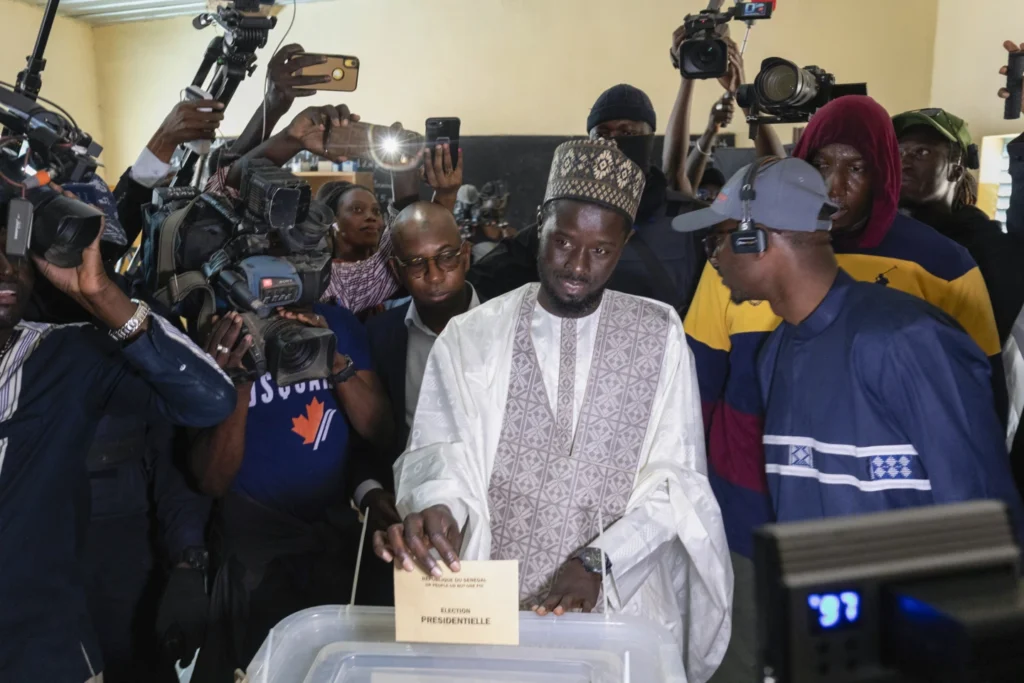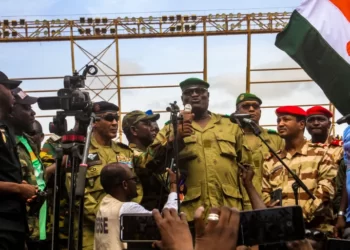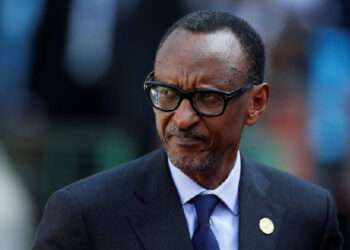Senegalese citizens queued up to cast their votes on Sunday, March 24 in a closely contested presidential election, following a period of uncertainty and unrest.
This electoral process is seen as a critical test for Senegal’s reputation as a stable democracy in a region that has experienced a series of coups in recent years.
The election was scheduled for February 25, despite President Macky Sall’s failed attempt to postpone it until the end of the year, which led to violent protests.
Sall, constrained by the constitution, cannot run for a third term. Consequently, the voting occurs during Ramadan, the holy month observed by Muslims, during which fasting occurs from dawn to dusk.
Polling stations in the capital city, Dakar, saw long queues forming outside. The roads remained calm as the nation’s elite police force patrolled the city in armored vehicles, verifying voters’ identification cards.
Although official results are anticipated next week, candidates have historically announced their predictions on the evening of the vote.
Observers noted a high turnout among the more than 7 million registered voters, particularly in the morning, although exact figures will be available later on Sunday. Babacar Gueye, leader of Senegal’s COSCE civil society observer network, stressed the importance of participation in ensuring the election’s legitimacy.
Gueye remarked, “At the opening of polling stations today, I have never in the past 15 years seen so many people going to vote.”
Leading up to the election, there was widespread rejoicing in Dakar as opposition figure Ousmane Sonko was released from imprisonment, revitalizing excitement for the electoral journey.
Despite being barred from candidacy due to a prior defamation conviction, Sonko throws his weight behind his trusted associate, Bassirou Diomaye Faye, who was released from prison.
Khodia Ndiayes, a 52-year-old cook, voiced her backing for Faye in the voting process, expressing her hope for Sonko’s triumph.
“I’m proud to have voted,” she said. “We need a new president because life is expensive, the economy is bad and we need better schools.”
Issues Shaping Senegal’s Elections

A primary concern for numerous Senegalese voters is the state of the economy, which has been strained by high food and energy costs, partially influenced by the conflict in Ukraine.
Independent research from Afrobarometer indicates that nearly a third of Senegal’s youth are without employment opportunities, prompting thousands to undertake dangerous journeys in pursuit of work opportunities in Western countries.
“Young people have masters degrees but they’re selling coffee on the side of the street or are motorbike taxi drivers — there’s no work,” said Cheikh Omar Sy, 60, who works for an international development agency in Dakar.
Senegal stands out in a region where military takeovers have displaced civilian governments in Mali, Niger, and Burkina Faso. The upcoming election is poised to mark the nation’s fourth peaceful transition of power since gaining independence from France in 1960.
However, despite Senegal’s commendable track record, the electoral process in the past year has been marred by episodes of violence and unrest, resulting in the arrest of numerous opposition demonstrators.
A total of 19 candidates, including one woman, are vying for the presidency, representing the highest number of candidates in the nation’s history.
Mame Diarra Juey, a 29-year-old administrator, recounted her arrest during a protest, where police discovered a bracelet indicating her affiliation with Sonko’s now-disbanded party. She spent a month behind bars and is currently out on provisional release.
“It really impacted me but I realized there is a huge need to change the system and the regime. Now I’m raising awareness in my community on the importance of voting,” she said.
According to analysts, it is unlikely that any candidate will secure more than 50% of the vote, indicating a probable runoff election. Along with Faye, aspirants include Amadou Ba, a former prime minister, Khalifa Sall, a former mayor of Dakar unrelated to the president, and Idrissa Seck, a former prime minister from the early 2000s who was the runner-up in the 2019 presidential race.
READ ALSO: Attorney-General warns Franklin Cudjoe





















